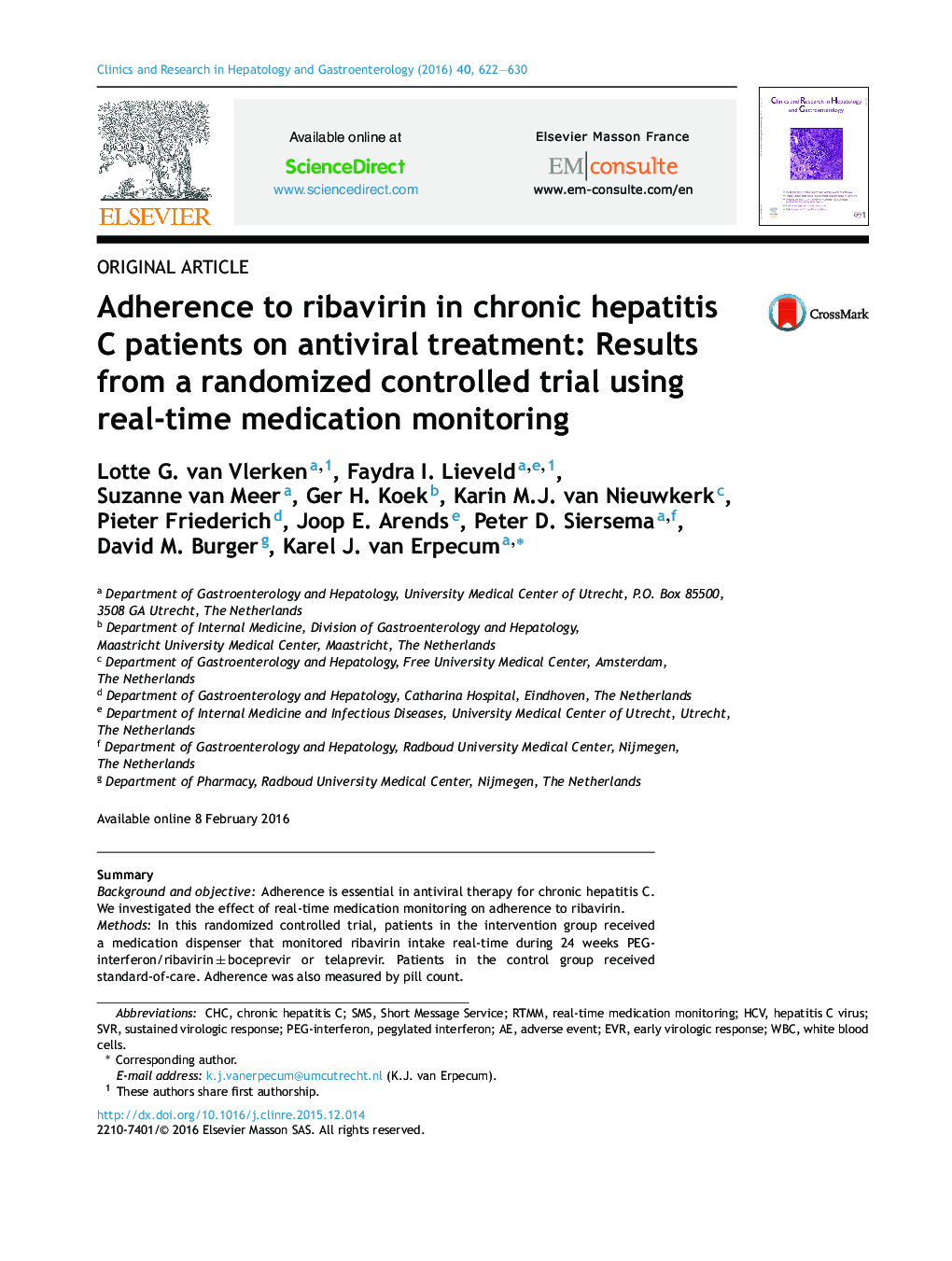| Article ID | Journal | Published Year | Pages | File Type |
|---|---|---|---|---|
| 5657770 | Clinics and Research in Hepatology and Gastroenterology | 2016 | 9 Pages |
SummaryBackground and objectiveAdherence is essential in antiviral therapy for chronic hepatitis C. We investigated the effect of real-time medication monitoring on adherence to ribavirin.MethodsIn this randomized controlled trial, patients in the intervention group received a medication dispenser that monitored ribavirin intake real-time during 24 weeks PEG-interferon/ribavirin ± boceprevir or telaprevir. Patients in the control group received standard-of-care. Adherence was also measured by pill count.ResultsSeventy-two patients were assigned to either intervention (n = 35) or control groups (n = 37). Median adherence by pill count was 96% (range: 43%-100%) with 30 (94%) of patients exhibiting â¥Â 80% adherence. Perfect adherence (i.e. 100%) was similar in intervention and control groups: 22 (85%) vs. 15 (75%) (P = 0.47). Adherences by real-time medication monitoring and by pill count did not correlate (R = 0.19, P = 0.36). No predictors of poor adherence could be identified. Ribavirin trough levels after 8 weeks (median: 2.4 vs. 2.7 mg/L, P = 0.30) and 24 weeks (median: 3.0 vs. 3.0 mg/L, P = 0.69), and virological responses did not differ between intervention and control groups.ConclusionsAdherence to ribavirin during PEG-interferon containing therapy in chronic hepatitis C is high. Real-time medication monitoring did not influence adherence to ribavirin, plasma ribavirin levels or virological responses.
